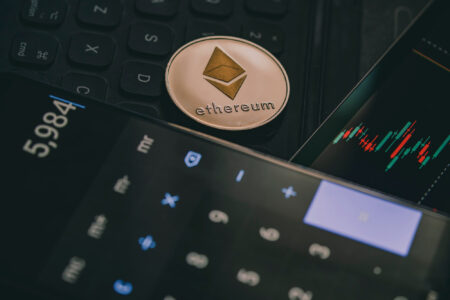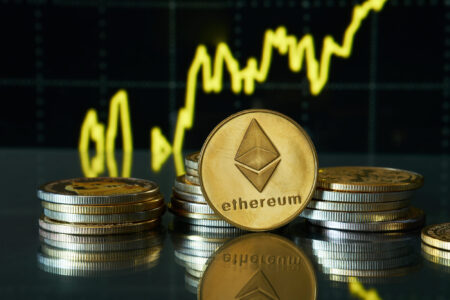Our monetary system is in upheaval, currency crises are accumulating. But every crisis also offers opportunities: The Internet opens up new opportunities for private money supply. So why not pay with Google money?
This article is a guest contribution by Christian Pieter Hoffmann and was originally published at hayekianer.ch.
"When I buy something on the Internet, I usually use Google dollars - they are accepted everywhere, even abroad. In Switzerland, I usually take the Migros franc, although I also find the SBB thaler practical. I never actually carry physical money with me - everything is done electronically after all. This or similar could be the report of a consumer in 2030.
Google dollar or Migros franc? Money that is issued by companies, not by states? Isn't that absurd? Not at all, in a certain sense such a solution would even be a return to the roots of money. Because money is a commodity. It is produced because it serves a purpose, because there is a demand for it.
durable, easily divisible, homogeneous, scarce...
The purpose of money is quickly explained: it is a medium of exchange, it facilitates the exchange of different goods and services, because it is no longer used to exchange shoes for hairdressing, but rather shoes for money and hairdressing for money. That is obviously more clever. For the medium of exchange to be a good medium of exchange, it must meet certain quality criteria: it must be durable and easily divisible, it should be homogeneous - a "piece" of money must be just as good as any other - and it should be scarce, otherwise its exchange value is too low.
These requirements explain why gold and silver have been our money for a long time, because precious metals meet all quality criteria well. Of course, shells can also be money - and in some places they have been - but they are less durable, hardly homogeneous and difficult to divide. So gold and silver were our money for many centuries. Until a new phase was heralded a few decades ago, when a major experiment began.
Because it was only in 1971 that we had a pure paper money standard. That was when the USA ended the pegging of Western currencies to gold. Since then, citizens have been hoping that the state central banks will not print too much paper - because paper is certainly not scarce. And this is also evident, because since then the money supply in practically all Western countries has risen sharply, money is devaluing faster than ever - and the frequency of financial and currency crises has increased dramatically.
So maybe the paper money experiment is not such a good idea after all? And anyway, why should only the central banks be able to offer money? In other areas of life, state monopolies are known to be characterised by high costs and low quality. Why should this "golden" rule not also apply to dear money?
A question of trust, of course
Since money is a commodity, basically anyone could offer money. Of course, the money business is a question of trust. Do we trust the provider to permanently provide high-quality money, that he does not simply devalue it to enrich himself? Does the money have such a good reputation, is it managed so professionally that it is widely recognized and can be used in many places? There is a simple and proven mechanism that can increase the quality of an offer and reduce costs at the same time: competition.
Of course, there is already very limited money competition today - at international level. Dollar against franc against euro. Perhaps even more importantly: dollar against gold - the price of gold is a good indicator of mistrust in the government's money supply. It therefore has a more disciplinary effect than the relative devaluation of the dollar against the euro. Within countries, however, state monopolies still apply in most cases. So what might real competition look like?
Always a network good
Increasingly, the attention of money providers is directed towards the new media. Because in new, electronic media, it is easier than ever to offer and use money. Money has always been a network commodity anyway. Electronic payment is now lightning fast, convenient and also quite secure. Does it really matter to the customer or the seller whether it is a Swiss or a Migros franc that is transferred electronically? Credit card owners already know the experience of having to select the preferred currency when entering the PIN - dollars or francs?
Why not Bitcoin? The private online currency is currently experiencing a boom. And is a fine example of the private offer of electronic money. Bitcoins are "prospected" by an electronic program that anyone can download to their PC. Of course, they can also be bought for government money. Payment with Bitcoin is based on a cryptographic key that identifies the Bitcoin and its owner. In this way, Bitcoin can be exchanged securely electronically. And the real highlight: The number of possible Bitcoins is capped. Even if more and more users "mine" Bitcoins, the Bitcoin program specifies how many Bitcoins can be created in total. At some point, production slows down, and once 21 million Bitcoins have been "prospected", that's it. That will probably be the case in 2140. These clear rules of the game make the currency scarce - and create trust.
Now Bitcoin is an open source project of the Internet community. It attracts rather connoisseurs of the subject and may still seem incomprehensible to many. But what if well-known platforms like eBay accept the new currency (as is already rumored)? What if big names like Google, Amazon or Apple start offering their own money? These companies are specialized in making trading on the Internet convenient and efficient. Certainly, their money offer would also be easy to understand and simple to use. Possibly so simple that other providers would quickly be willing to accept Google dollars or Amazon pounds.
Electronic money is the norm of the future
The new money competition is met by the fact that cash is dying out anyway. Scandinavian countries are already striving for a cash ban, and Switzerland and the EU also want to restrict cash transactions. The motive may lie in controlling the flow of money or in the fight against black money and tax avoidance. Ultimately, however, the effect is clear: we will all eventually get fully accustomed to electronic payments. Electronic money is the norm of the future - the question remains, who offers it?
Money is a product of competition, it is a commodity. Competition ensures decent quality at attractive prices. The current paper money monopolies have a modest track record, they are constantly in crisis. And they correspond less and less to the diversity of our living, travel, consumption and payment situations. Especially today, as we get used to electronic transactions and electronic payment, there are therefore new opportunities for new money. What we need are courageous entrepreneurs who can seize these opportunities and make us customers an attractive money offer. So let's look forward together to the Google dollar and the Migros franc!
The article was first published in HSGFocus 04/ 2013.




